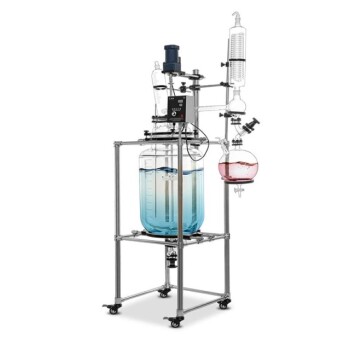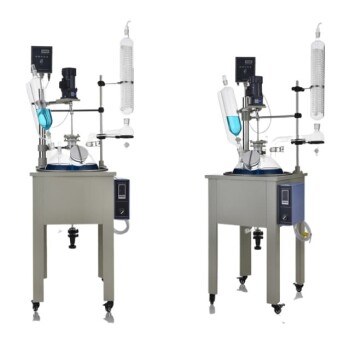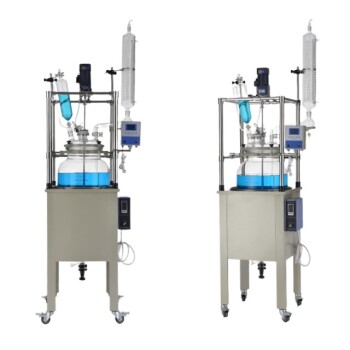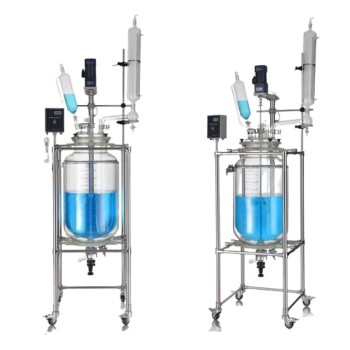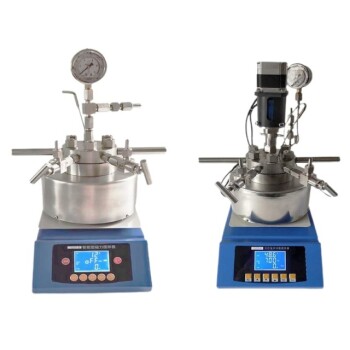A glass reactor vessel is a specialized piece of equipment used in scientific, industrial, and research settings to create a controlled environment for chemical reactions and processes. It is typically made of high-quality borosilicate glass, which is chemically inert, resistant to corrosion, and transparent, allowing for visual monitoring of reactions. The vessel is designed with a double-layer structure, enabling the circulation of heating or cooling fluids to maintain precise temperature control. Glass reactors are widely used in industries such as pharmaceuticals, fine chemicals, biotechnology, and research labs for applications like distillation, reflux, extraction, crystallization, and polymerization. They come in various sizes and can operate under atmospheric or vacuum conditions, with integrated stirring mechanisms to ensure efficient mixing of reactants.
Key Points Explained:
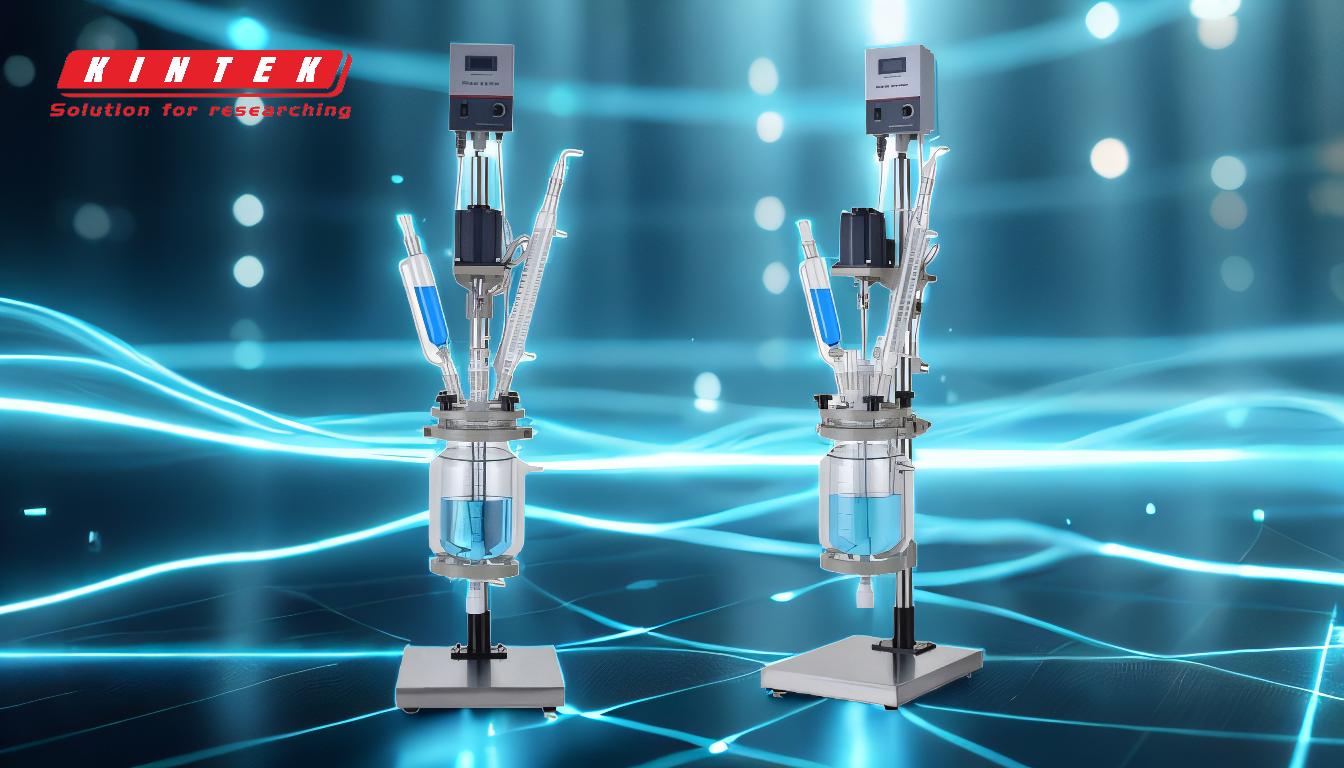
-
Definition and Purpose:
- A glass reactor vessel is a sealed container made of borosilicate glass, designed to facilitate chemical reactions under controlled conditions.
- It is used to conduct experiments and processes such as distillation, reflux, extraction, and crystallization in industries like pharmaceuticals, chemicals, and biotechnology.
-
Structure and Design:
- The reactor features a double-layer glass design, with the reaction materials placed in the middle layer.
- The outer layer allows for the circulation of heating or cooling fluids to maintain a constant temperature.
- It includes a centrally mounted agitator for stirring and baffles to ensure proper mixing and turbulence.
-
Material Properties:
- Made of borosilicate glass, the vessel is chemically inert, resistant to corrosion, and can withstand high temperatures and pressures.
- The transparency of the glass allows for real-time observation of the reaction process.
-
Operational Capabilities:
- Can operate under atmospheric or vacuum conditions, depending on the requirements of the reaction.
- Temperature control is achieved through external equipment like heaters, chillers, and heat transfer fluids.
- Suitable for high-temperature, low-temperature, and vacuum reactions.
-
Applications:
- Widely used in chemical synthesis, polymerization, distillation, crystallization, and extraction.
- Common in industries such as pharmaceuticals, fine chemicals, biotechnology, and scientific research.
- Ideal for processes requiring precise control of temperature, pressure, and mixing.
-
Advantages:
- Chemical Resistance: The inert nature of borosilicate glass ensures compatibility with a wide range of chemicals.
- Thermal Stability: Can withstand rapid temperature changes and high thermal stress.
- Transparency: Allows for visual monitoring of reactions, which is crucial for experimental accuracy.
- Versatility: Suitable for a variety of reactions and processes, making it a valuable tool in multiple industries.
-
Heating and Cooling Methods:
- Heating can be achieved using steam, electric heaters, or high-temperature heat transfer oil.
- Cooling is typically done using chilled water or other cooling liquids circulated through the jacket or coils.
-
Integration with External Equipment:
- Glass reactors are often connected to external devices such as vacuum pumps, condensers, and temperature controllers to enhance functionality.
- This integration allows for precise control over reaction parameters like pressure, temperature, and mixing speed.
-
Sizes and Configurations:
- Available in a range of sizes, from small laboratory-scale reactors (500 milliliters) to large industrial units (150 liters or more).
- Configurations include single-layer, double-layer, and multi-layer designs, depending on the complexity of the process.
-
Industry Use Cases:
- Pharmaceuticals: Used for drug synthesis, purification, and crystallization.
- Fine Chemicals: Ideal for synthesizing specialty chemicals and intermediates.
- Biotechnology: Employed in the extraction and purification of natural products.
- Research and Education: Essential for academic research and teaching laboratories.
In summary, a glass reactor vessel is a versatile and essential tool for conducting controlled chemical reactions and processes. Its unique design, material properties, and integration capabilities make it indispensable in various industries, particularly where precision, transparency, and chemical resistance are paramount.
Summary Table:
| Aspect | Details |
|---|---|
| Material | Borosilicate glass (chemically inert, corrosion-resistant, transparent) |
| Design | Double-layer structure for heating/cooling fluid circulation |
| Applications | Distillation, reflux, extraction, crystallization, polymerization |
| Industries | Pharmaceuticals, fine chemicals, biotechnology, research labs |
| Advantages | Chemical resistance, thermal stability, transparency, versatility |
| Operational Range | High/low temperatures, vacuum/atmospheric conditions |
| Sizes | 500 mL (lab-scale) to 150+ liters (industrial) |
Need a glass reactor vessel for your lab or industry? Contact us today to find the perfect solution!


